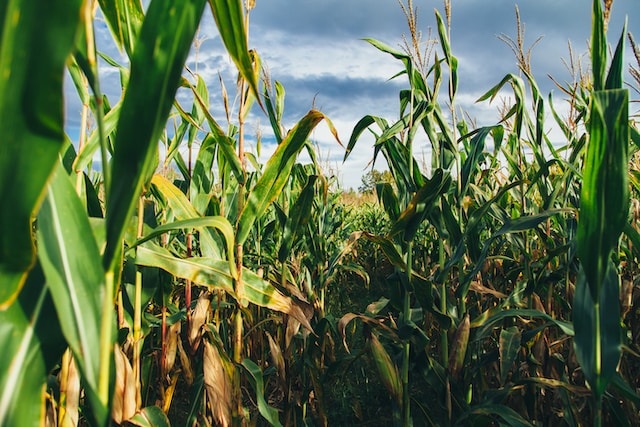Frenzied speculations about Donald Trump’s various Cabinet appointees have extended to the next head of the USDA, to replace the controversial Tom Vilsack, AKA “Mr. Monsanto.” At least fifteen potential nominees are currently the subject of appointee chatter in blogs and headlines, but one stands out as a peculiar outsider-in-chief: Kentucky congressman Thomas Massie.
Congressman Massie is an unexpected nominee for secretary of agriculture, given his sometimes less than supportive posture toward Donald Trump. Yet his popularity with libertarians and food rights activists, distrustful that another Vilsack will be visited upon them, resonates with the hopeful aspirations of MAHA (Make America Healthy Again). Many view Massie as the top candidate if the MAHA agenda is to be credibly attempted.
Massie fits the MAHA bill. Living off-grid and raising beef cows, the bold but soft-spoken congressman advocates for raw milk and introduced the PRIME Act, which would expand opportunities for local livestock farmers to sell their meats within their own states. Most other candidates instead hail from large industrial agricultural or — worse — corporate employment with the very industries Republicans claim have “captured” the regulatory agencies overseeing food.
Non-Massie candidates include Trump donors and loyalists who may not be committed to ensuring quality local foods by way of industry shake-up. Zippy Duvall is a Georgia farmer, but his production of 750,000 chickens a year is hardly small-scale farming. His pro-industry American Farm Bureau presidency is a minus, not a plus, for food quality watchers. Candidate Aurelia Skipwith Giacometto “began her career at Monsanto in 2006, working her way up to sustainable agriculture partnership manager.” For the food-focused, Monsanto’s “sustainable agriculture” is as oxymoronic as Charles Manson running a battered women’s shelter, or Jim Jones peddling soft drinks. And potential agriculture secretary Ted McKinney “worked for 19 years with Dow AgroSciences and 14 years with Elanco, a subsidiary of Eli Lilly and Company” — not a good MAHA look.
Self-styled “lunatic farmer” Joel Salatin thrust Massie’s name into the potential USDA leadership limelight in a November 6 blog post that gushed hopefully:
My favorite congressman, Thomas Massie from Kentucky, has agreed to go in as Secretary of Agriculture. … He’s been the sponsor of the PRIME ACT, which, if pushed through, would be the biggest shot across the bow of the entrenched industrial meat processing system we’ve seen in a century. Let liberty ring. Wouldn’t that be a change of fortune for Big Ag?
Massie has signaled his willingness to consider serving as secretary of agriculture. Still, a recent canvass of potential picks by Politico ignored the Kennedy MAHA favorite and considered only the politics-as-usual suspects. Politico’s coverage reveals the industry resistance addressed by Salatin:
[Trump] faces a major question over how much influence he’ll allow Robert Kennedy Jr. to have at the Agriculture Department, given Kennedy’s antipathy to broad swathes of agribusiness.
Politically powerful, conservative-leaning agriculture groups are eager for Trump to slash regulations. But some of Kennedy’s biggest goals to ban or limit certain farming practices and unhealthy foods would require Trump to implement an entire regime of new regulations.
This question of giving Kennedy promised reign over the MAHA agenda weighs heavily on the president-elect’s USDA pick, which will signal his willingness to truly upset the bureaucratic apple cart rather than just promote donor-loyalists or career bureaucrats. Massie represents policy change that Amish farmers and MAHA libertarians (and swaths of both Democrat and Republican voters who prioritize clean food) can genuinely believe in.
However, Politico is either mistaken or dissembling: “industrial agriculture groups” are the world’s largest food manufacturers seated at the WEF pushing for more regulations to compel people to eat their chemical-dependent food wares globally. The push for reduced regulations at USDA comes not from industrial giants but from grassroots homesteaders, raw milk foodies, local farmers who want to process and sell grass-fed meats, and consumers who are tired of Big Ag and Big Food dominating the USDA, FDA, and EPA.
Furthermore, Kennedy’s “biggest goals” for food would not require “an entire regime of new regulations” — simply reducing the massive federal subsidies currently allocated to the nation’s largest GMO crops. This is something Big Ag most definitely does not want to occur, and that a libertarian like Massie might be most inclined to implement.
So where will Thomas Massie land in the USDA weigh-in? He is the top pick for libertarians, food rights activists, Kennedy fans, and MAHA watchers. America will soon see whether Donald Trump will choose a MAHA voice for USDA right out of the appointment gate or disappoint with a big-business-as-usual selection, perhaps an ultra-processed “Ms. Monsanto.”
